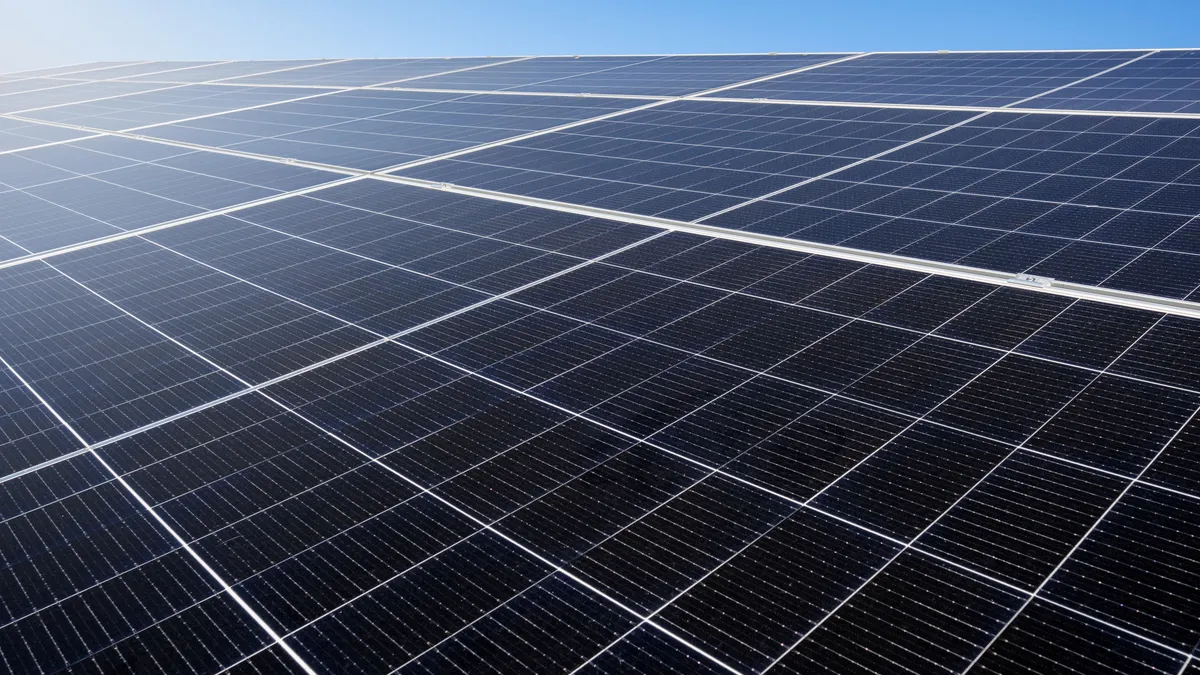Dive Brief:
- Stem saw sharply lower battery hardware sales and downwardly revised contract valuations that significantly reduced revenue and net income in the third quarter, the clean energy services provider said Wednesday.
- Revenue for the period fell 78% to $29.3 million compared with $133.7 million in Q3 2023 while net losses ballooned to $148.3 million from $77.1 million in the year-ago period amid a previously announced strategic pivot from clean energy hardware to higher-margin software and services. Bookings for future business fell to $29.1 million from $676.4 million in Q3 2023 due primarily to lower battery hardware resale bookings, Stem said.
- Stem eliminated its chief strategy officer position in August, replaced its CEO in September and appointed a new chief technology officer to “lead … efforts to deliver enhanced AI-enabled software and edge device capabilities as part of the company’s recently announced software and services-centric strategy,” the company said.
Dive Insight:
Stem’s third-quarter income and revenue declines mirror a second-quarter performance that then-CEO John Carrington described as a “disappointment” in Stem’s Aug. 6 earnings release, issued before the company announced its pivot away from hardware sales.
Revenue declined 65% year-over-year in Q2 2024 while bookings slumped by nearly 90%, according to the August release.
The Q2 declines were due in large part to factors “beyond our direct control,” including “unforeseen extensions of project timelines caused by certain customers’ … project financing delays and protracted interconnection timelines,” Carrington said.
While Stem’s expansion into the utility-scale energy storage market increased the company’s average deal size it “also led to increased variability, greater project complexity, and [a] longer sales cycle than we anticipated,” he said.
The hardware business continued to impair Stem’s financial performance in the third quarter as the company booked a $104.1 million “bad debt expense … related to certain customer contracts that provide a parent company guarantee,” Stem said Wednesday.
Those contracts, which date from 2022 and the first half of 2023, required Stem to provide remarketing assistance to customers unable to install hardware within a set period and subsequently “to compensate the customer for any shortfall in fair value for the [resold] hardware from the initial contract price,” Stem said.
Stem stopped offering such remarketing and fair market compensation guarantees in June 2023 and “will continue to provide hardware procurement, but only under certain strict profitability and working capital guidelines,” the company said. The third-quarter charge reduces to zero the value of assets subject to guarantees, it added.
Stem’s strategic pivot has the company primarily providing hardware procurement advisory services rather than direct procurement, it said.
Stem went public in 2021 via a special purpose acquisition company. Its stock price peaked around $47/share during its first year of trading, got a temporary boost from the August 2022 passage of the Inflation Reduction Act, and declined steadily over the subsequent two years. It has traded below $1/share since early August.
Stem’s core software product is Athena, an enterprise energy management solution that optimizes performance and enables wholesale market participation for distributed energy resources like solar plants, energy storage systems and EV charging programs. Athena helps manage more than 25 GW of solar capacity and 5 GWh of battery capacity, Stem says.













